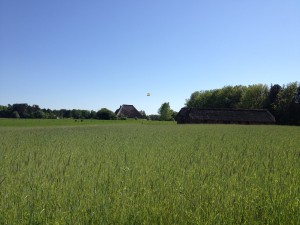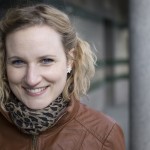Louise Øhrstrøm Poulsen is a PhD student at the University of East Anglia. Her thesis is a study of metaphor and emotion in Julian of Norwich’s Revelations of Divine Love.
Why do emotions matter in historical research? How does our understanding of emotion affect our research? Are emotions just another discourse, or is the study of emotions something different which is in need of a particular set of theoretical and methodological tools?
On a sunny Friday in May, fifty students and scholars met at The Open Air Museum near Copenhagen to reflect on some of these questions. As PhD student Camilla Schjerning mentioned in the introduction to the seminar, the setting of the seminar could not have been more suitable. Gathering to discuss ‘making sense of past emotions’, we found ourselves among historical houses and fields which school children, families and tourists explore every day, engaging their imagination, senses and emotions in order to get an idea of how people used to live in Denmark.
Professor Michael Roper from University of Essex opened the seminar with a paper entitled “The Unconscious Work of Social History”. Inspired by psychoanalysis, he suggested that we should understand history as a relationship, in the sense that the way in which we engage with our historical sources is always affected by our own emotions and sensibilities, whether consciously or unconsciously. Explaining how his background and sensibilities had shaped his professional research, Roper stated that we need to work on our subjectivity and empathy in order to re-awaken the power of the past in our minds and thus be able to answer the simple, yet complicated question: “How can we work with historical sources?”
Dr. Claire McLisky then presented her postdoctoral research on emotions in a colonial context. According to McLisky, there has been a tendency among postcolonial scholars to look at emotions as yet another thing the coloniser would enforce on the colonised, and very few postcolonial scholars have drawn on recent research by emotion scholars such as Stearns, Rosenwein and Reddy. In her project, McLisky is engaging with these scholars and is using historical sources, such as art and letters, to try to reconstruct the emotions of the colonised. She is interested in the concept of “emotional economies” as a possible way of understand the relationship between the coloniser and the colonised.
The next papers dealt with specific historical sources and discussed how these sources perform emotion. Professor Otto Ulbricht from Kiel University presented his work on Early Modern Ego-documents such as diaries and letters. According to Ulbricht, these documents do not hold many emotion words, yet, when you study the context they are written in, they do perform a wide range of emotions and oppose what Rosenwein calls “the grand narrative” (that emotions in medieval and early modern societies were more primitive).
The Head of The Saxo Institute at University of Copenhagen, Tine Damsholt, presented research on emotions in public and semi-public space in late-eighteenth-century Copenhagen. Copenhagen. Using theories on performativity and thus understanding emotions as something you do, Damsholt analysed how emotions were enacted and performed through literature, pantomime, tableaux and patriotic celebrations in late-eighteenth-century Copenhagen.
Finally, two guest speakers from museums in Denmark had been invited to present. Curator, Thomas Lyngby, presented a paper on how arrangement, atmosphere and mental life in urban houses in the Danish upper classes in the eighteenth century revealed a hierarchy inthe homes, and how performance of emotion would be dependending on the location in the home. Camilla Mordhorst, Museum of Copenhagen, closed the seminar with a paper on the longing for presence in the historical exhibition.
Making Sense of Past Emotions was an interesting seminar which raised many important questions within the field of the history of emotions.Many thanks to the organisers, Camilla Schjerning and Peter Wessel Hansen from The University of Copenhagen. The seminar was a great opportunity to be introduced to different ways of working with emotions in history as well as to meet other students and scholars who are doing research in this fascinating developing field.


